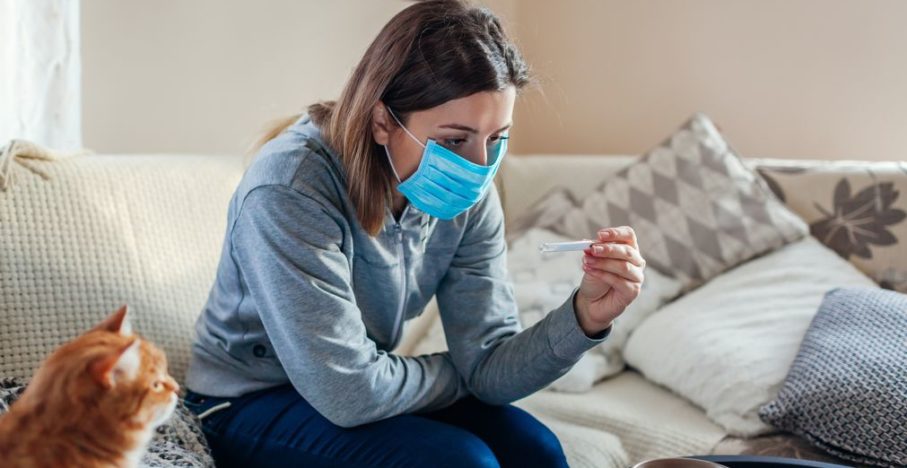What Happens When Someone You Perhaps Know Shows Sign of COVID-19

Is your college prepared for outbreaks of COVID-19?
Colleges and universities are doing what they can to keep their campuses safe from COVID-19. No matter what measures they take, however, there’s always a risk that someone on campus will catch the virus – and colleges and universities must be prepared for the inevitability. Here are some questions to ask your school so you can feel assured that it’s ready for whatever might happen.
Treatment Options
What happens to students exposed to the virus? In most cases, anyone with known exposure to COVID-19 will be required to report to the campus clinic. Andrew T. Miltenberg, a New York City attorney with substantial experience defending student rights, suggests that colleges are “obligated to quarantine the student and remove them from campus once they test positive.”
How quarantine works may vary from campus to campus. Some may reserve a separate dorm to keep quarantined students apart from the rest of the campus population. Others may quarantine students in the campus clinic. If the school lacks better options, the student may be sent home to study online until their health is confirmed.
Should the student get sick, the college is no more responsible for their care than for a student sick with other conditions. “Generally, if the school is taking reasonable steps to protect the student population on campus, the school should not be responsible for sick student care,” says Miltenberg. The student may be sent home or to a hospital, but then will be out of the college’s hands. That’s why it’s important for students and their families to find out about the school’s exact provisions for COVID-19 treatment.
Responding to Surges
One case is seemingly simple enough to address, but what about larger surges? No matter what precautions are taken, disease can still spread quickly on a college campus. Even one case can result in an outbreak. When deciding whether to return to campus, make sure you know it’s equipped to handle many cases at once.
If there is a surge, there’s also the question of what happens next. When COVID-19 first hit, colleges were forced to close down quickly without much notice. This resulted in a mass rush to get home and belongings left behind, which may have even contributed to the virus’ spread. If schools will reopen, they need a clear plan for the possibility of another closing.
Liabilities of Colleges and Universities
When someone gets sick, there’s also the question of liability, but this is especially relevant in an outbreak. Are sick students eligible for compensation when they get sick at school? Miltenberg believes that it depends on the specific situation. “There will be a question about steps schools have taken to clean and make sure that their campus is COVID-free,” he states. If the college has taken the right steps, then it may not be held liable for outbreaks.
Knowing that a few cases are inevitable, colleges may try to limit their liability. Not all families will find it acceptable, however, if colleges suddenly limit liability during a student’s education. Be careful if your college asks for signatures on waivers and contracts, and don’t be afraid to push back if necessary.
Protect Your Rights
The possibility of a COVID-19 case on campus is a difficult concern to consider, and colleges may not want to discuss it. According to Miltenberg, however, “schools need to have answers for all these questions.”
If you aren’t comfortable with your school’s answers or if you believe that your college is trying to avoid responsibility for COVID-19 cases and outbreaks, don’t hesitate to reach out for help. Contact Andrew T. Miltenberg, Esq., a student-rights attorney at Nesenoff & Miltenberg, LLP, to learn what options are available to you.




